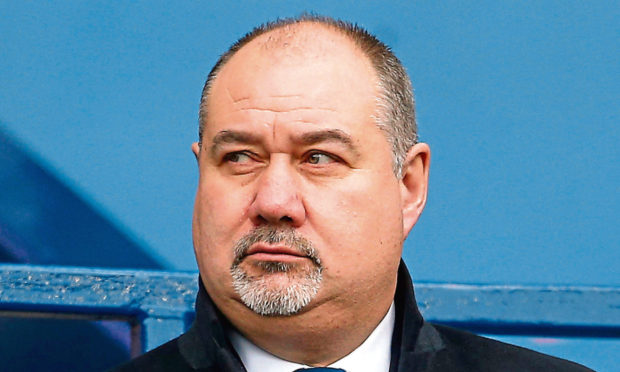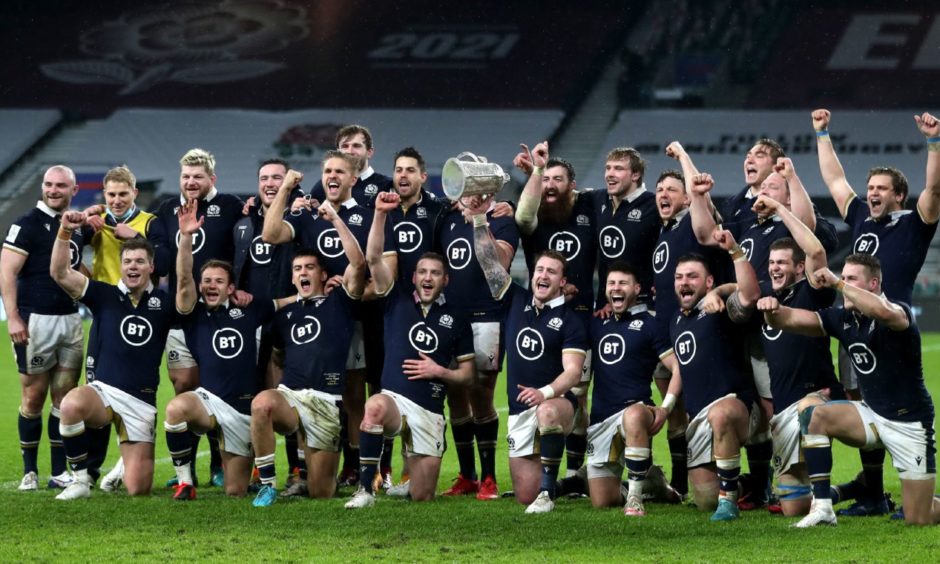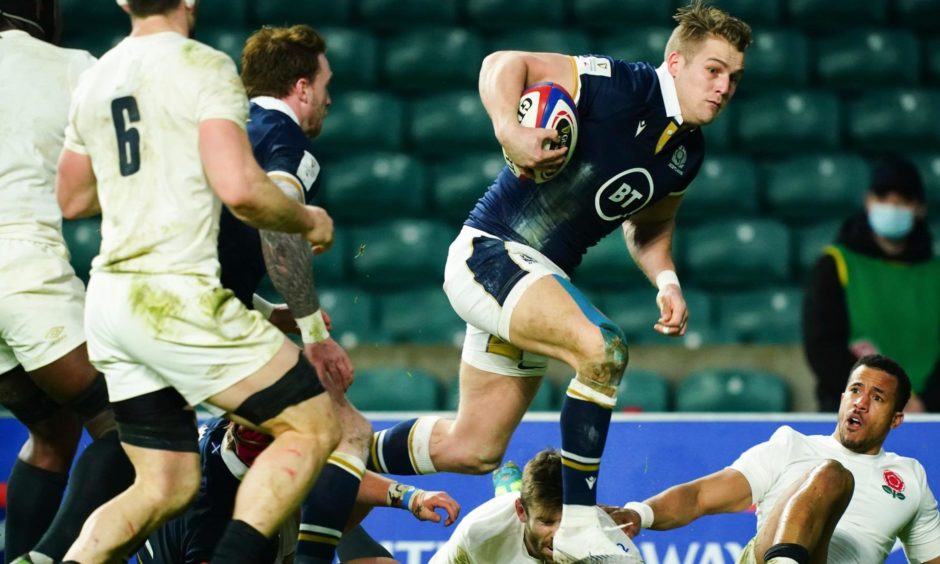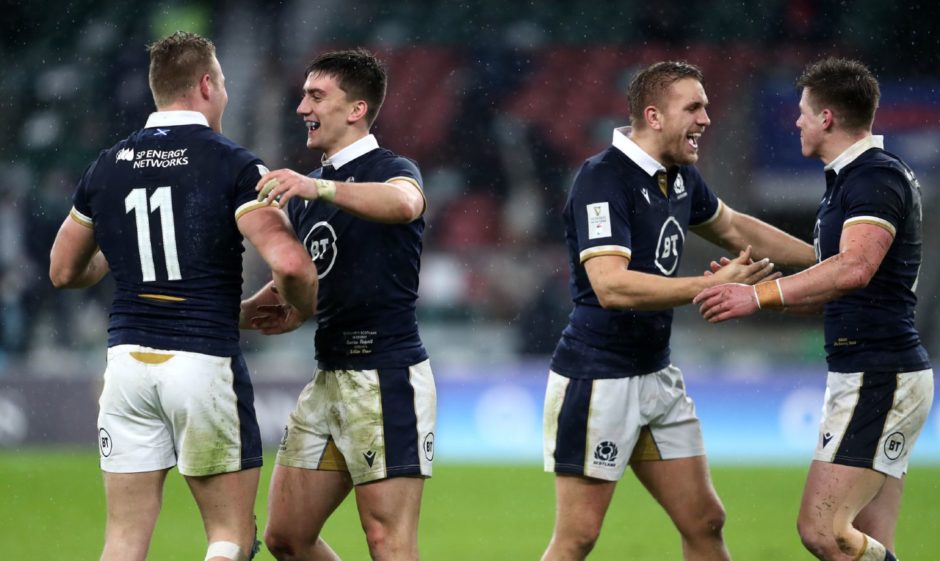It’s not that long since Scotland’s rugby stars made a habit of beating their Irish counterparts on a regular basis.
Year in, year out, the SRU’s finest would gain the upper hand in these clashes and it was a measure of their superiority throughout the 1990s that Grand Slam-winning stand-off Craig Chalmers was involved in 11 matches against Ireland and lost only once.
Fast forward 20 years, though, and the balance has shifted to a dramatic degree, not just in the Six Nations Championship but whenever their district representatives lock horns – and it is one of the more embarrassing aspects of the current Guinness Pro 14 conference season that Glasgow and Edinburgh have been reduced to bit-part players, stumbling and struggling badly during ill-starred campaigns.
To some extent, lockdown has glossed over the scale of the malaise, just as it has done at Celtic, Liverpool and Aberdeen in the football stakes. It has also probably helped that the Pro 14 contests are being shown on Premier Sports, which means hardly anybody is witnessing the lacklustre displays being served up by the Scots’ two representatives.
The Pro 14 has been very disappointing this year
But the results speak for themself. Glasgow Warriors in Conference A have lost nine of their 13 fixtures and are a staggering 44 points behind leaders Leinster – and 33 adrift of Ulster. In Conference B, Edinburgh have lost eight of their 12 matches and are 34 and 22 points respectively behind Munster and Connacht. In total, they have played 25 times and won eight – a success rate of only 32%.
You can make a few excuses about why this has happened, although none of them cut much ice. Glasgow have been weakened by the departure of a number of leading performers in recent times, including Stuart Hogg, Finn Russell and Jonny Gray, while the appointment of Danny Wilson as coach has not yielded the same success which Gregor Townsend and Dave Rennie enjoyed with the Warriors.
Edinburgh, for their part, have just created a new £5.7million stadium, built in conjunction with the governing body, which features covered stands on all four sides with a capacity of 7,800. One would imagine this will generate greater atmosphere in the future than was the case on too many occasions at Murrayfield where the experience of sitting in a cavernous, near-empty venue was the opposite of uplifting.
Ireland’s success contrasts with Scotland’s failure
Yet the fact remains that the Scots have only two teams in the Pro 14 and both are languishing. The Irish have four and they occupy the top places in both groups. If somebody had told you a couple of decades ago that Connacht would be soaring far ahead of Edinburgh, it would have prompted derision, but there is no glossing over the current situation. And club rugby, which once used to be the proud bedrock of the Caledonian game, seems to be withering on the vine.
I can’t be the only person to feel rather sad about this state of affairs, but it was on the cards from the moment the SRU decided to pour all their resources and energies into districts rather than sticking with the status quo. What we now have is a Scotland A and B side participating in the Pro 14 and without any sustained signs of success.
Thankfully, this will have little bearing on next Sunday’s Six Nations meeting between the two countries in Edinburgh. Having already beaten England and been maddeningly pipped by Wales, Townsend’s troops, bolstered by the aforementioned trio, who are now plying their trade in England and France, have a reasonable chance of claiming their second victory in the tournament if they can repeat their previous form and avoid the indiscipline which allowed the Welsh to wriggle off the hook last month.
Scots have the stellar players to prosper
Scotland have only managed one solitary win in their last 10 meetings with the Irish – a staggering contrast from the fortunes enjoyed by Chalmers, Gary Armstrong & Co in the 1990s – and that was their hard-fought 27-22 victory at Murrayfield in 2017. And they have suffered three defeats in the last 18 months, most recently the 31-16 reverse at the Aviva Stadium in Dublin in November’s Autumn Nations Cup.
But, if the statistics paint a sorry picture, the likes of Hogg and Russell have the skill and the mercurial quality to trouble an Irish defence which hasn’t always looked secure this winter. And the home pack now possesses a genuine grunt and va va voom. It could be an almighty tussle; one which puts the ‘war’ into ‘forwards’, but I am more optimistic about the outcome than I am about the current health of the game in Scotland.
Let’s hope the clubs can return to competitive action shortly, and let’s trust the administrators can develop more home-grown talent rather than filling gaps with so-called ‘Jock Boks’, who are increasingly gaining international caps through eligibility.
As for Glasgow and Edinburgh, questions have to be asked about the level of investment in these organisations and why the SRU is persevering with bankrolling two professional teams in the central belt which eats up so much of their finances.
Whatever happens on the pitch next weekend, the Scots could definitely learn lessons from Ireland off it.



